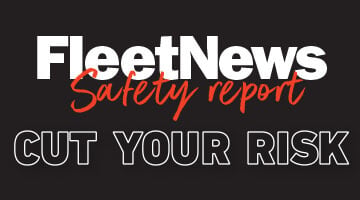The Department for Transport (DfT) has confirmed it will use public sector fleets as a test bed to lead future policy to address insurance liability concerns surrounding autonomous vehicles.
The British Vehicle Rental and Leasing Association (BVRLA) met with the DfT on March 7 to discuss the Vehicle Technology and Aviation Bill 2016-17.
Patrick Cusworth, BVRLA senior policy advisor, who was present at the meeting, told Fleet News his concerns going into the meeting have been addressed.
He said: “We went through the bill and the DfT has confirmed to us it only applies to the public sector at this point. At the moment, there is no great change for the private sector as this will come further down the line.”
The bill proposes that where an accident is caused by an automated vehicle when driving itself and the vehicle is insured at the time of the accident, the insurer will be liable for that damage.
However, the insurer would have the right to make a subsequent claim against the manufacturer of the car if it is thought to be the cause of the accident (clause 5).
At the bill’s second reading, transport minister Chris Grayling said: “Under the provisions in the bill, it will be possible to have an insurance policy that covers both eventualities of something going wrong: when the driver is in control and when the vehicle is in autonomous mode.
“That is one of the key changes necessary to create an environment in which such vehicles can operate freely on the roads.”
However, the bill states that if the vehicle has not been properly insured, the driver will be liable, even if the vehicle was driving itself. The driver will also be at fault if they have unofficially altered or failed to install software updates to the car’s operating system.
Grayling said: “There are enormous possibilities ahead with these technologies. In a few years, we will all increasingly have the opportunity to use semi-automated and automated vehicles.
“However, to make these technologies a reality, we need to act now. We need to create the regimes that will help developers to bring their products to market in a safe way that protects consumers.”
Grayling expects it to be at least another 10 years before fully automated vehicles will be on the roads in private use in the UK.
Cusworth said there has been no timetable set by the Government for addressing how it will change regulations for insurance in the private sector, but using the public sector as a test bed first is ‘the right approach’.
He said: “This is the Government setting out its stall first before looking at the private sector.
“The DfT is waiting on international feedback from the United Nations on the Harmonisation of Vehicle Regulations and this will help inform how it proceeds on this complex issue in the future.”
Cusworth said that while he is happy with the DfT’s approach to liability in relation to automated cars, he said the BVRLA remains concerned there has still been no clarification on connected car data access.
The DfT was unable to confirm to the BVRLA during the meeting a timeline for regulations on the ownership and access to connected car data.
Charging infrastructure clarity
The bill also references the Government stepping in to improve clarity around the UK’s EV charging infrastructure.
The DfT is looking to introduce new regulations to clarify locations, operating hours, costs, methods of payment and access, means of connection and information on whether a charge point is actually working. It has also suggested it may introduce legislation to require mandatory installation of public charge points across the UK’s ‘large fuel retailers’.
Grayling said: “This bill provides for much greater transparency of charge point data, making it much easier to identify the locations of the best charging points.
“In particular, it enables common technical standards and better interoperability. We will also be able to accelerate the roll-out of electric vehicle infrastructure at key locations, such as motorway service areas and large fuel retailers, and make charge points ready for the needs of the marketplace.”


















Login to comment
Comments
No comments have been made yet.